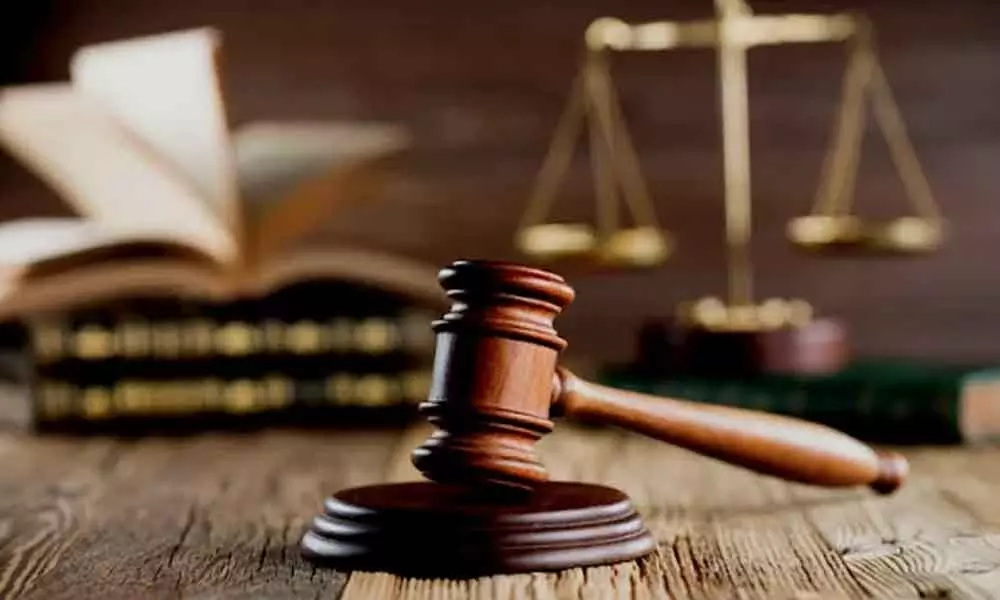Verily, sedition law is archaic; but, alas; so is our judiciary!

Remove unconstitutional sections from statute
If we prefer to go on shedding tears over all the wrongs perpetuated by our former colonial rulers, perhaps a new sixth ocean of ‘tears’ would emerge
If we prefer to go on shedding tears over all the wrongs perpetuated by our former colonial rulers, perhaps a new sixth ocean of 'tears' would emerge. Unfortunately, since Independence until recently, neither our elected representatives nor erudite judges of the country had bothered to undo the historical wrongs of the colonial era. The archaic laws enacted after the first war of Independence in 1857 continued to rule roost.
Off late, since 2014, some patch work to get rid of archaic and draconian laws has been done and the process is still ongoing.
Seen in this context, the concern expressed by the apex court about the existence of colonial laws such as the Law of Sedition is appreciable. However, the suggestion of the learned Attorney General of India (AGI) or adding more filters to the Law of Sedition by the Supreme Court deserves reconsideration, primarily because making more amending any law is the function of the Legislature and the jurisdiction of the apex court is indeed limited to the extent of judicial review of any law thus made by the Legislature. Hope, the AGI voiced his personal opinion on this contentious subject in the court and had no instructions from the Executive.
Indeed, the country's judiciary has an uphill task before it. It has virtually let down the gullible people of this vast country by not devising appropriate mechanism for the speedy disposal of cases and granting quick relief to the people who become unfortunately the victims of law breakers, including in Khaki. The prevalence of rampant corruption at all levels is also a matter of grave concern.
True, the courts are saddled with onerous duty of maintaining a fine balance between upholding the privacy and fundamental rights of people on the one hand and sovereignty and integrity on the other. It is a tight-rope walking exercise and quite often, the judiciary has tasted the failures.
In the process, quite often, the law-abiding and honest citizen is at the receiving end. The people who become the victims of either brazenly violent outlaws indulging in heinous crimes like murder, rape, dacoity, mob lynching, robbery, arson etc; often go scot-free by taking shelter under the spacious plea of 'human rights' while the 'refined' outlaws indulge in drum beating from the roof-tops in their support.
The examples of such a travesty of justice are many. In the recent times, be it a case of murders of Sadhus in Palghar or burning of houses of innocent people after committing serious offences such as looting and rapes, speak volumes for not only the utter failure of law and order, but also other organs of the Constitution, including the Judiciary for not taking the emergency call in time.
To say the least, it is unfortunate that while there are lobbies and lobbies who rush to the aid of law breakers, terrorists, separatists, jehadis and extremists, there is not even a feeble voice of support heard for the truly law abiding, nationalists and honest masses who are unfortunately subjected to the violence. What would be the end result of such a situation is anybody's guess.
Good news about educational loans
Here is the good news for the students seeking educational loans from a bank. According to a judgment dated July 9 of the Kerala High Court, a bank cannot deny the educational loan to a student just because his or her parents have existing liabilities or no sufficient income to repay the loan.
Justice PB Suresh Kumar delivering judgment in Devika Soniraj vs The Zonal Manager, Bank of India and another, while directing the respondent bank to disburse the loan applied for by the petitioner forthwith, observed: "The very purpose of the educational loan scheme formulated by the bank being to ensure that a meritorious student shall not be deprived of the opportunity to pursue higher education merely on the ground that he/she does not have the resources for the same, if the contentions raised by the bank are accepted, the same would defeat the object and purpose of the scheme."
Bombay HC on Section 311 of CrPC
Justice Revati Mohite Dere of the Bombay High Court, while dealing with a writ petition filed by Nauna Rajan Guhagarkar vs The State of Maharashtra, has observed that Section 311 of the Code of Criminal Procedure (CrPC) cannot be used to fill up the lacunae in the prosecution evidence.
The court's powers to summon any person at any stage of inquiry, trial or other proceedings to summon any person as a witness or examine any person in attendance, though not summoned as a witness or recall and re-examine any person already examined, is to be used to arrive at the just decision of the case, the Court added.
The court further observed that the trial judge's decision to re-examine the complainant after the judgment was reserved for orders would seriously cause prejudice to the petitioner.
Demand for SC regional ¬benches grows
Off late, the long pending demand for the establishment of regional benches of the Supreme Court of India has been gaining momentum. The South Indian Advocates Joint Action Committee (SIAJAC) which is in the forefront in raising this demand had submitted a memorandum to the Chief Justice of India during his recent visit to Hyderabad.
Now, its convener S Nagender called on the Union Law Minister Kiren Rijiju and Union Minister for Culture G Kishan Reddy, who hails from Hyderabad, and submitted a memorandum reiterating the demand for setting up of SC regional benches. Both the Ministers assured to extend their support, according to the Convener, SIAJAC.

